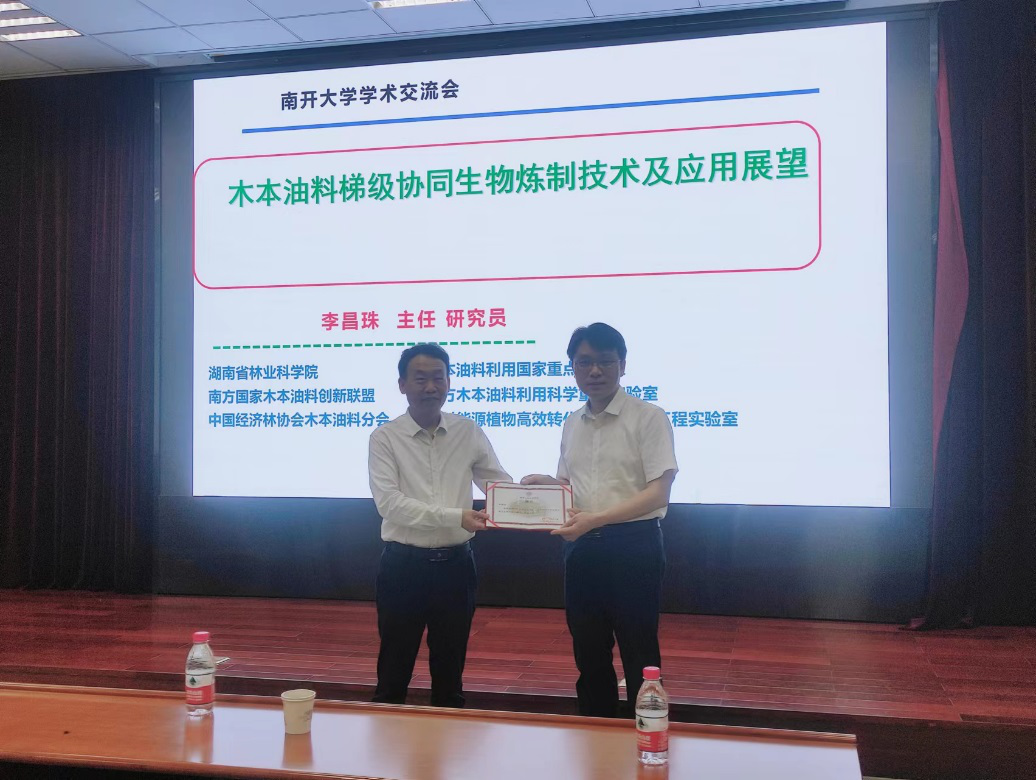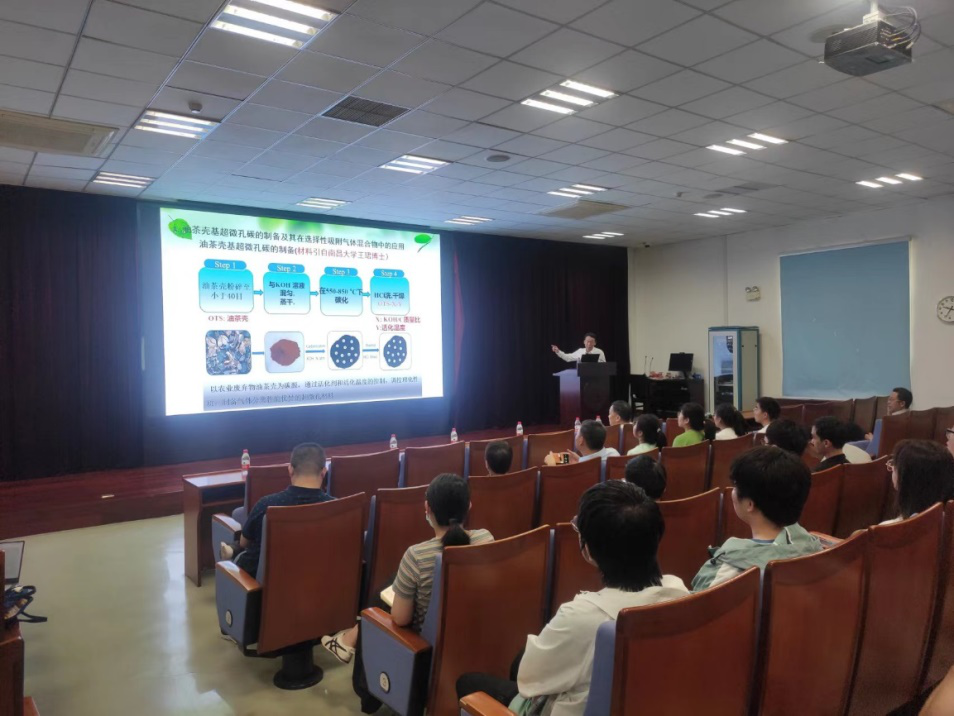On May 15th, Prof. Changzhu Li, the Director of the Technology Committee at Hunan Academy of Forestry Sciences and the Director of the State Key Laboratory of Woody Oil Resources Utilization, was invited by Prof. Liangnian He from the State Key Laboratory of Elemento-organic Chemistry to give a lecture titled "Prospects of Cascade Cooperative Biorefinery Technology and Applications for Woody Oil Materials " at the academic lecture hall of Shixian Building. Students and faculty from Institute of Elemento-organic Chemistry attended this academic exchange.

Prof. He presided over the lecture. Before the presentation, Prof. Shoufei Zhu, Dean of College of Chemistry, presented Prof. Li with a letter of appointment as an "External Supervisor for Professional Master's Students in College of Chemistry."

The development of high-value chemicals and functional materials from renewable biomass resources is a significant approach for the high-value utilization of biomass, which is of great importance for the national major demands and sustainable development in the "Dual Carbon" strategy. Woody oil materials not only contain a high content of lignin and hemicellulose but also have functional and active components such as polyphenols and saponins, making them more diverse and valuable compared to traditional woody fiber biomass. Camellia oleifera is the most widely planted woody oil tree species in China. Tea oil extracted from Camellia oleifera is rich in polyphenols, phytosterols and beneficial health-active factors such as stigmasterol. Except for the utilization of oil, the remaining residues after oil extraction, such as shells and cakes, are often used as fuel or fertilizer, or directly discarded, resulting in resource waste and environmental pollution. However, there is a huge demand for saponins, proteins, fibers, and active components and there is a lack of technological methods for their extraction and deep utilization.
Prof. Li systematically introduced the utilization of woody oil materials and cooperative biorefinery technology from five aspects: understanding the characteristics of oil resources in woody oil materials, challenges in resource utilization, scientific issues and technical challenges in biorefinery of oil materials, innovation system and product development and prospects in the future.

During the question & answer session, Prof. Li engaged in enthusiastic discussions with the teachers and students about the utilization of Camellia oleifera and cooperative biorefinery technology, creating a strong academic atmosphere.